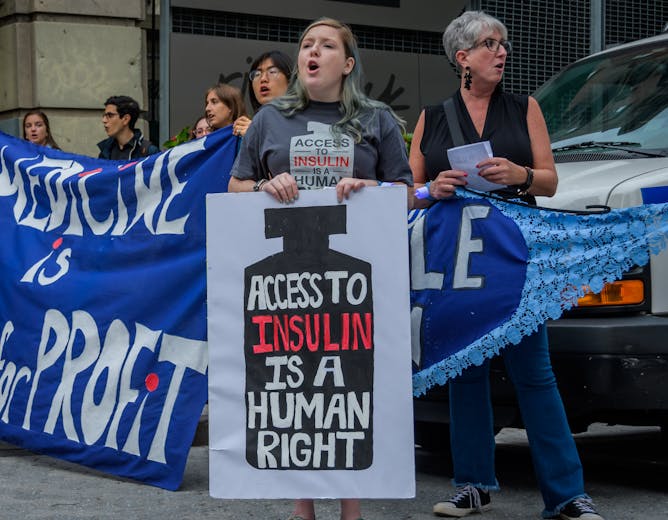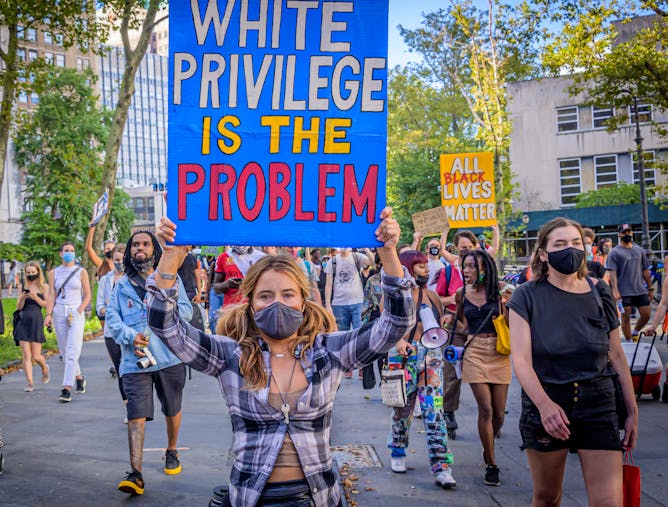|
Welcome to Sunday!
This week we’re excited to try something new. For the last few years, our Sunday newsletter has brought you the week’s five most-read stories – a sort of readers’ choice picked by people across the internet.
That’s not going anywhere.
But we decided to also bring you five editors’ picks from the last week so that we can share more of our best work with you – while still keeping the Sunday newsletter a quick read.
What do you think of the change? Hit reply and let us know.
Editors’ picks
Easing a burden: A nonprofit generic drugmaker called Civica Rx will manufacture the most common versions of insulin and make sure that a month’s supply costs patients roughly $30 a month, starting in 2024.
Unintentional overdoses: Fentanyl overdoses are increasing because mixing fentanyl with other drugs can be more profitable for traffickers than selling the pure drug alone.
A new space race: Countries like China, Russia and the U.S. are beginning to establish the rules and norms that will dictate how the wealth and power of space are shared in the future – but inequality is a growing concern.
Adult ADHD: A psychologist offers practical strategies to help adults who struggle with organization and attention issues.
Limits of desegregation: A closer look at some of the reasons why the nation’s schools often don’t reflect its growing diversity.
Readers’ picks
|

High insulin prices are leaving some people who need the drug without access.
Erik McGregor/LightRocket via Getty Images
Jing Luo, University of Pittsburgh Health Sciences
About 1 in 4 Americans with diabetes who need insulin struggle to pay for this lifesaving drug.
|
|
|
-
Kavita Babu, UMass Chan Medical School
Fentanyl’s wide availability in the drug supply has led to an increase in unintentional overdoses. While prevention strategies are available, limited availability stymies their use.
-
Theodora Ogden, Arizona State University
Current trends suggest that powerful nations are defining the rules of resource use in space and satellite access in ways that will make it hard for developing nations to ever catch up.
-
Rob Rosenthal, University of Colorado Anschutz Medical Campus
Although medication and therapy can be effective treatments for ADHD, they’re not the only way to manage the disorder or its symptoms. Creating a daily routine is critical too.
-
Pedro A. Noguera, University of Southern California
Though the 1954 Brown v. Board ruling required the integration of public education, US schools remain separated by race.
|
|

A protester holds a sign reading ‘White Privilege Is The Problem’ at a rally against policy brutality and racial injustice in New York on Sept. 5, 2020.
Erik McGregor/LightRocket via Getty Images
Christopher Quarles, University of Michigan
In this era of racial reckoning, words such as ‘white privilege’ have played a significant role in defining social problems plaguing America. But those words also have a downside.
|
|
|
-
Ronald Sullivan, Harvard University
The 14th Amendment banned Confederates from public office. But the rebels later received an amnesty that now might save GOP members from prosecution for their roles in the Jan. 6 insurrection.
-
Michael A. Allen, Boise State University
Western officials say that Russia may officially declare war on Ukraine on May 9. An international relations expert explains why this day is significant, and why a war declaration would matter.
-
Susan L Trollinger, University of Dayton; William Trollinger, University of Dayton
Two scholars of fundamentalism and creationism explain what they found when they visited the Ark Encounter, an evangelical theme park in Kentucky,
-
Robert Glennon, University of Arizona
The Colorado River provides water and electricity to 40 million people in the western US, but falling water levels threaten both of those resources.
|
|